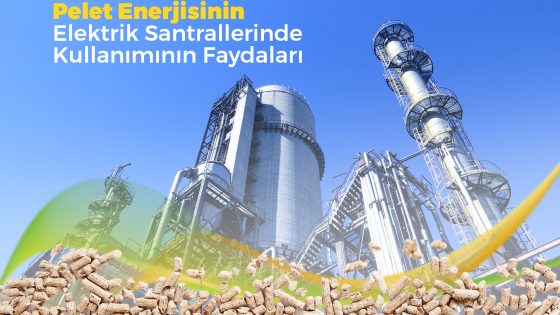
Benefits of Using Pellet Energy in Power Plants: Cost Reduction and Environmental Impact
The energy sector is required to balance important goals such as sustainability and cost-effectiveness. Pellet energy plays a significant role in achieving this balance when used in power plants. In this blog post, we will examine in more detail how the use of pellet energy in power plants provides advantages in terms of cost reduction and environmental impact.
- Cost Reduction and Operational Efficiency: Pellet energy is an effective tool for reducing operating costs in power plants. Pellets provide more efficient combustion due to their homogeneous structure and low moisture content. This allows power plants to generate more energy with less fuel. Additionally, the low moisture content of pellets reduces losses during storage processes. The low moisture content and high energy density of pellets also lower fuel supply and storage costs, thereby increasing operational efficiency.
- Reduced Frequency of Flue Filter Changes: In addition to reducing the environmental impact of power plants, pellet energy also lowers maintenance costs. The combustion process of pellets results in lower emissions of pollutants and particulate matter compared to other fuels. This means that flue gas purification systems become less contaminated. Reduced accumulation of particulates and pollutants implies that flue filters need to be changed or cleaned less frequently. This reduces maintenance costs, allowing power plants to operate more economically.
- Carbon Emissions and Environmental Protection: Pellet energy enhances its positive environmental impact through reduced carbon emissions during electricity generation. The low carbon dioxide emissions enable power plants to produce energy in line with sustainability goals. Reducing the carbon footprint in electricity generation contributes to mitigating major environmental issues like climate change.
- Waste Management and Utilization: Pellet energy supports the evaluation and recycling of biomass waste. Waste materials such as forest residues, agricultural by-products, and wood industry by-products are used to produce pellet energy, converting waste into energy. Utilizing these waste materials in energy production not only offers solutions to waste management problems but also enhances our contribution to the environment.
The use of pellet energy in power plants supports cost reduction and environmental impact while also aiding the energy sector in achieving sustainability goals. Pellet energy reduces costs by increasing operational efficiency while minimizing environmental impact through reduced carbon emissions. Additionally, it contributes to sustainable energy production through effective waste management and utilization.
The use of pellet energy in power plants is an important step that combines environmental and economic sustainability in the energy sector. This allows for better control over energy production costs while also reducing environmental impact.
